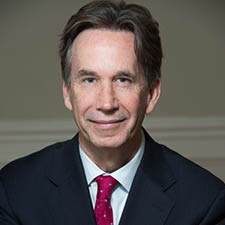When James Baker, MD’s, son Max died, the local headlines read: “Son of a doctor who couldn’t find help.”
Max Baker had struggled with heroin addiction since he was 17—going in and out of treatment with periods of recovery. He and his family had struggled over the years to find the right treatment program for a lasting recovery. Eventually, through Max’s own research, he found program that worked for him. However, that recovery was jeopardized when he was hospitalized after a car accident. He initially refused medication, but the post-surgical pain had been greater than he anticipated and he eventually agreed to a low opioid dose.
Less than a month after his surgery in December 2016 his father asked him, “What do you think needs to be done to help people suffering from addiction? What do doctors and legislators need to do to help?” Max spoke candidly with his father about how even with help, addiction was not something someone could always control, but he was trying. Max told his father that he wanted to go to medical school and become a doctor so he could try to help people like himself.
Max died five days later from a heroin overdose. He was 23 years old.
“I am left knowing what he could have done,” said Dr. Baker, “and what he learned through his struggle.”
Pushed to share
Dr. Baker then founded the Maxwell F. Baker Foundation for Addiction Recovery and began speaking with local and national media news outlets about his son. He spoke at high schools, community gatherings and medical conferences, and he also met with state legislators working on opioid-related legislation in Massachusetts.
“I don’t present as an expert in addiction treatment, or anything more than a physician epidemiologist and father who wants to share what I have learned along the way,” Dr. Baker said.
What he has learned is that compassion and comprehensive care are key.
“I begin every day reading about addiction and intervention,” Dr. Baker said. “I’ve gone through MAT training with buprenorphine, safe prescriber training, suboxone implant training, safe prescriber training, anything I can do that might help people on an individual level all the way up to the U.S. Congress. If there is a way that I can help—I’m going to.”
Read more about the AMA’s laser focus on removing barriers to treatment for opioid-use disorder, which includes eliminating stigma and prior authorization for medication-assisted treatment.
Helping peers by phone
In addition to his “day job” as a hospice and palliative care physician, Dr. Baker works for the Massachusetts Consultation Service for the Treatment of Addiction and Pain, a peer-to-peer phone consultation service set up by the commonwealth to provide free, real-time phone consultations to primary care physicians who need help prescribing and managing care for adults with chronic pain or a substance-use disorder.
“It’s intensely satisfying, and I look forward to it every day,” Dr. Baker said. “When I complete a conversation with someone who has concerns about a patient, I can walk them through what the issues are and what the best treatment options are.”
This service runs Monday through Friday, eight hours a day, but Dr. Baker hopes it will be expanded to run 24 hours a day, seven days a week.
“I have been the recipient of so much kindness from others. It feels incredibly important for me to share what I know with others.” Dr. Baker said. “I owe it to my son to speak up and carry his message and his memory forward.”
Learn more about what the AMA is doing to end the opioid epidemic.




